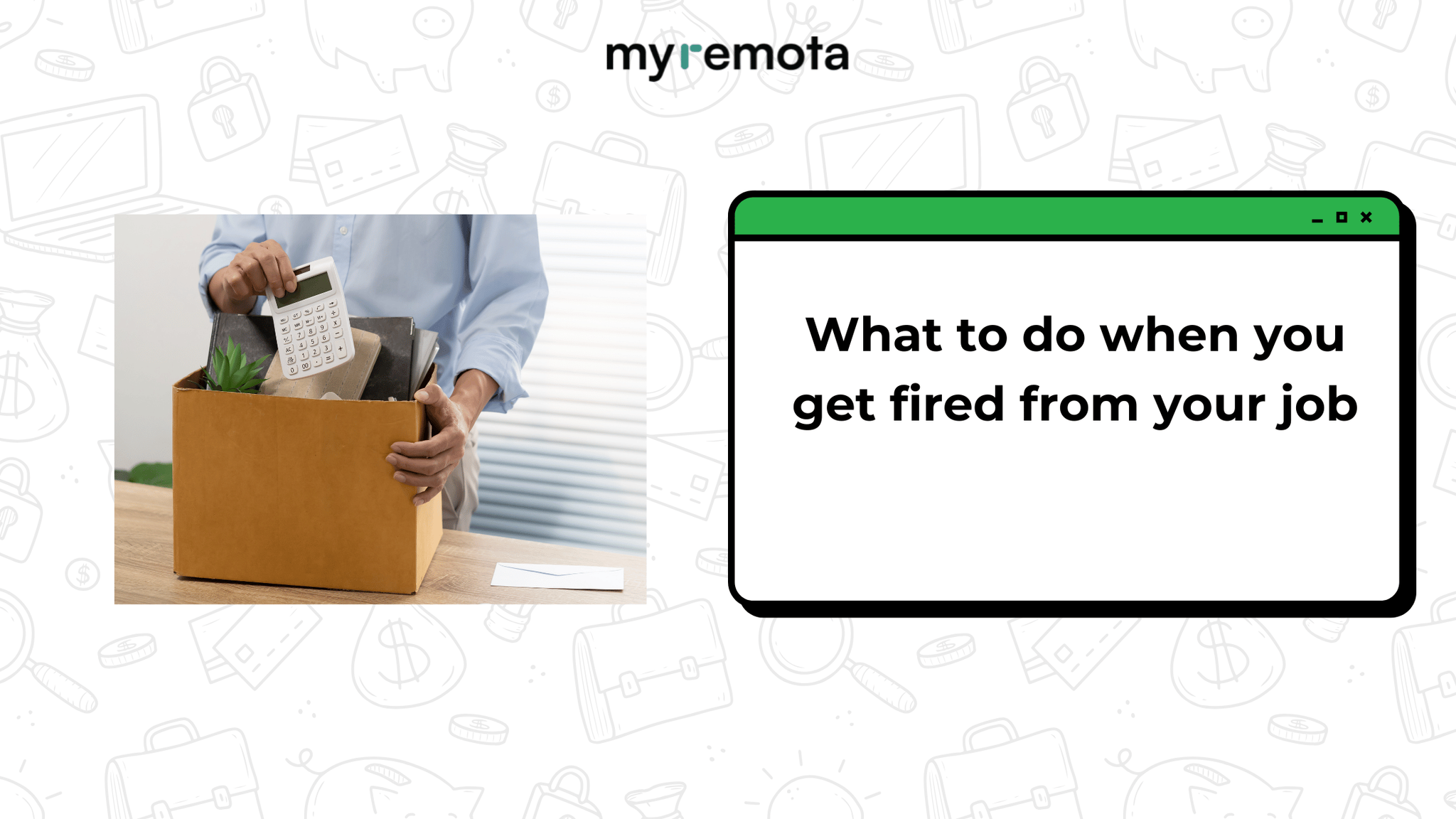
What to do When You Get Fired from Your Job
That sack letter might come as an unexpected twist, but you need to know that it’s also a chance to redefine where you’re headed. For the sake of your career, there are some things you just don’t say or do after the termination of employment.
So, you got fired. Ouch. Sorry about that. Maybe you saw it coming, maybe it blindsided you like an offside goal. Either way, being fired is rarely part of anyone’s five-year plan. But here’s the thing: what feels like an embarrassing, soul-crushing “what do I do now?” moment can actually be the beginning of an epic comeback story.
That sack letter might come as an unexpected twist, but you need to know that it’s also a chance to redefine where you’re headed. For the sake of your career, there are some things you just don’t say or do after the termination of employment.
This is because your actions can either set you up for better opportunities or make finding that next job way harder than it has to be. But hey, that’s why we’re here – to walk you through what works, with some practical steps to turn this whole situation around and come out on top.
3 Major Things to Avoid After a Job Loss
Don’t Burn Bridges
As tempting as it might be to give your boss a piece of your mind served on a really hot plate, take the high road and let it slide. You never know when you’ll cross paths with former colleagues or bosses in the future, or who might have connections to your next job. Instead, leave with a polite goodbye, even if it feels forced. Graceful exits pay off in the long run.
Don’t Vent on Social Media
There’s this infamous story about a recruitment interview at GTBank where a candidate was hit with a screenshot of his own tweet saying, “GTBank is a very useless bank.” Yeah, you can probably guess how the rest of that interview played out.
Nothing says “red flag” like a social media rant. Future employers can look you up, and that spicy little post about how “the entire management team was useless” isn’t going to help. Instead, call a friend, yell into a pillow, or write an epic journal entry – but just don’t make it public.
Don’t Panic-Submit Applications
The fear of idleness, hunger, or not being able to pay the bills might make you feel like sending your resume to every company on LinkedIn, whether it’s a sales agent, warehouse manager, site doctor, or game developer opening. Sending applications left and right usually doesn’t land you the job you actually want. What it could even cause is depression and frustration because chances are you might be applying for a job where you’re not a good fit. Instead, give yourself time to regroup. You can also even consider having a side hustle and then you’re ready, be intentional about the positions you apply for.
Bouncing Back to the Job Market in 5 Steps
Now that you’ve had your moment of reflection (and maybe a good cry or two), it’s time to dust yourself off and gear up for your next big role. Bouncing back to the job market doesn’t have to feel like climbing Everest; it can be a simple, exciting journey of self-discovery and new opportunities. If you’re looking to stay in the same field or venture into something completely different, these five steps will help you get back on your feet in no time.
1. Take Time to Reflect
Losing a job can be a great chance to reassess where you’re going and whether you even want to stay on the same path. Ask yourself what you loved (and didn’t love) about your last job. Sometimes, a forced “pause” is just what you need to see the next step more clearly.
2. Update Your Resume
The next thing to do (if you haven’t been consistent with it) is to update your resume. You can consider using online resume builders like CVHack, Enhance CV, Resume.io, and even Canva . If you’re going to be getting a new job, that resume not only has to be up to date with your work experience but also relevant in the current business landscape.
Focus on your biggest accomplishments and be sure it’s not some five-page saga. Keep it crisp, and relevant, and highlight what makes you stand out. Employers love people who are clear about what they bring to the table.
3. Do Some Reaching Out
Make time to reach out to people you’ve worked with in the past, friends in the industry, or even that random acquaintance who seems to know everyone. Let them know you’re looking, but don’t turn every interaction into a plea for work. Just make your interest known and keep it light.
4. Skill Up
This is also a great time to tackle that software you’ve been avoiding. Learning something new can be a game-changer because not only does it keep you sharp and marketable, but it also shows potential employers that you’re proactive and committed to growth. Plus, it keeps your mind engaged while you’re in between jobs. Here are some really high-demand skills you can consider adding to your resume.
5. Apply! Apply! Apply!
Sending applications for 10 openings every day is not much – I assure you. Considering the conversion rates, the higher the number of jobs you apply for, the greater your chances of securing one. Just make sure you’re sending applications for roles where you are a good fit. MyRemota is a great place to find remote jobs if that tickles your fancy.
A Final Word of Advice
Getting fired is not in any way fun, but it’s also not the end. This could be the very shake-up you need to propel you toward a more fulfilling career. Take time for yourself, take a deep breath, and then get back out there. And remember: the best comebacks don’t happen overnight. If you can make time to embrace the process, learn something new, and aim higher than before, then you’ve got this!
